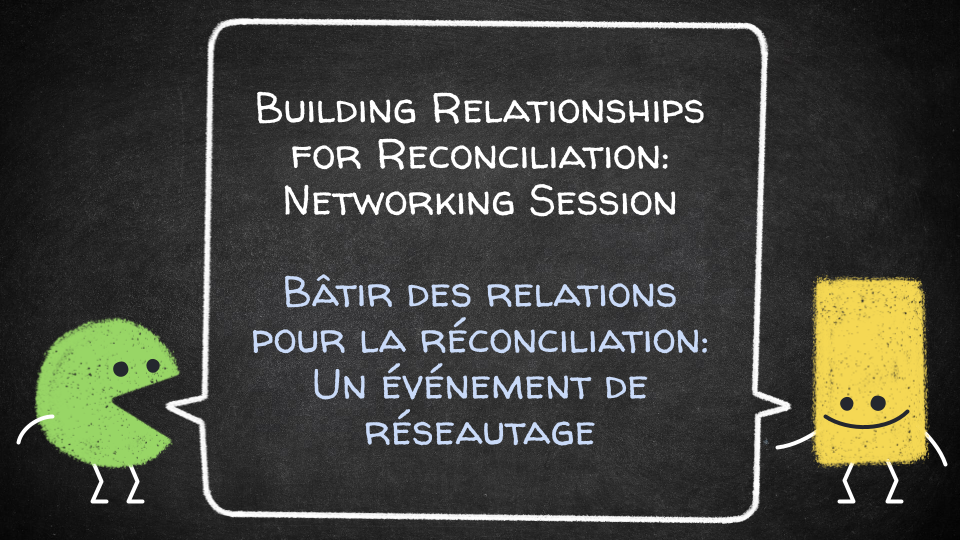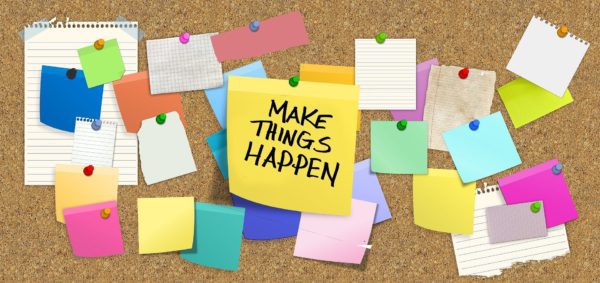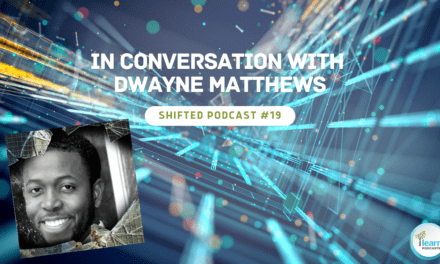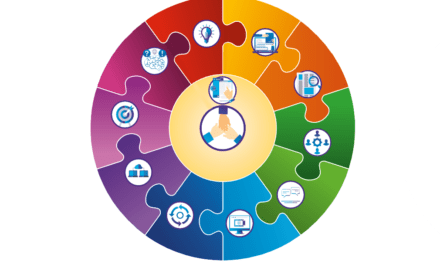This post was co-written by Stacy Anne Allen and Ben Loomer
Over the past year, we have been exploring what it means to engage in Education for Reconciliation. We have looked for different pathways educators can take to decolonize education and ‘value and promote Indigenous knowledge, worldviews, cultures and history through their pedagogy’ (Competency 15: For Educators)
When we say decolonizing education, we’re talking about acknowledging that Canada’s education system has and continues to suppress the voices and educational beliefs of Indigenous Peoples and other marginalized groups. Decolonization involves the inclusion of marginalized voices and beliefs around how colonial narratives impact Canadian society and how we can work towards reconciliation or the mending of relationships.
How do we reconcile teaching the popular narrative that Canada is a ‘just and democratic society’ when we know that treaties and promises continue to be broken? When we know that Indigenous children have and continue to be treated unequally?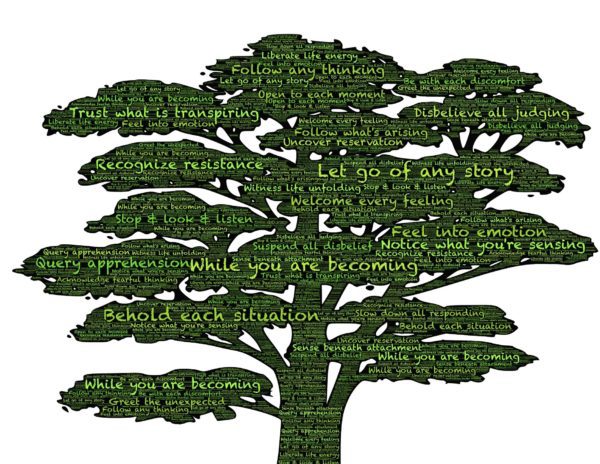
To be hopeful, we write this as the Canadian Government has reached an agreement in principle with Indigenous leaders who made a human rights complaint (in 2007) about a discriminatory child welfare system.
Since September, we’ve been in touch with over 100 educators from across the province interested in bringing Education for Reconciliation into classrooms and schools. While these educators recognize the importance of decolonizing their pedagogical practices, many still wonder how they can get started, if they are doing things the ‘right way’, and how they can do more to work towards reconciliation.
To move the conversation forward, LEARN hosted an Education for Reconciliation Networking session facilitated in English and French, and designed for Indigenous and non-Indigenous participants from rural, suburban, and urban settings. Participants considered how decolonizing education requires educators to incorporate Indigenous resources, but also Indigenous pedagogical approaches and ways of knowing.
Rather than pick a specific topic, we surveyed participants about what they would like to discuss. During the meeting, participants were welcome to move freely between the six discussion rooms based on their interests and needs.
What follows are some of the takeaway points from the sessions’ open discussions.
What does decolonization and reconciliation involve?
While at one time there seemed to be a lack of educational resources (lesson plans, books, teacher’s guides) on Education for Reconciliation, many educators voiced that they are now finding themselves overwhelmed with resources. While they are happy that more resources are being developed, some are now finding it difficult to determine which materials are best suited for their particular learning environments.
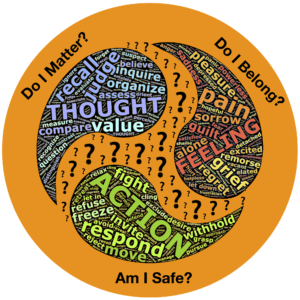 Which brings to mind the new teacher competencies and what it means to be a cultural facilitator – that an educator’s job is not to be keepers of knowledge but to teach critical thought and the importance of using credible resources.
Which brings to mind the new teacher competencies and what it means to be a cultural facilitator – that an educator’s job is not to be keepers of knowledge but to teach critical thought and the importance of using credible resources.
Educators do not need to be Indigenous or experts to engage in this work, but a reflective growth mindset is a critical part of moving forward.
Educators can ask self-reflective questions such as:
1. “How do my conscious and unconscious actions impact my students’ intercultural understanding?”
2. “Did I include diverse voices and narratives in my lesson plans?”
How can I integrate diversity into school culture and curriculum?
Educators that have opportunities to work together in reflective practice, critically assess classroom materials and make connections to the QEP are more likely to prepare strategies to use in their classroom as part of projects and themes.
A good example is Sir Wilfred Laurier School Board’s First Nations Teacher’s Guide 2.0, which features lesson plans and reflections from teachers engaging with Education for Reconciliation. This is an example of the ongoing work of teachers who can inspire other teachers to play a grassroots role in addressing the calls to action for Truth and Reconciliation. The guide is a great example of reflective practice that is crucial to the ‘learning by doing’ aspect of this work.
When selecting Indigenous resources for the classroom, educators are responsible for ensuring the resources are culturally relevant and from authentic sources, such as the First Nations Child and Family Caring Society. Some teachers choose to follow the Legacy School Program so they can work with an established group that provides a concise list of learning resources. Legacy Schools can work with students and schools to transform learning into #reconciliACTION. It is up to each teacher to develop partnerships that work best for their context.
Building up relationships is a crucial aspect of reconciliation. Creating opportunities to talk and empathize with each other is a good first step to participate in true reconciliation activities that require time to go beyond surface-level pleasantries or one-off activities.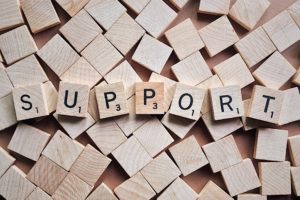
For the non-Indigenous educators in attendance who are just starting out, there was a common concern about making mistakes when implementing new pedagogical practices when teaching their students the truth about historical and current injustices. This conversation evolved into the importance of learning alongside one’s students and connecting with local Indigenous communities, using resources that are vetted by Indigenous organizations.
The Downie Wenjack Fund recommends educators contact their school board’s Indigenous education instructors, board leads, coordinators, support workers, and counselors who may be able to facilitate the proper protocol and suitable local contacts for your classroom and community.
Now that we had some time to reflect on the many suggestions and questions from the event, we wanted to share some thoughts on potential next steps for moving forward with developing relationships or getting youth involved in a project that contributes to reconciliation.
A community mapping exercise is a good first step to help relationships begin within the school walls. Identifying with fellow school staff what resources exist within the school board or local community is invaluable.
Starting a new project? Consider the following:
– Who else in the school and school board has a mission to teach, learn, and connect with resources around Education for Reconciliation?
– Who are the Indigenous and non-Indigenous community organizations dedicated to this work in the local area? Connect with a local Native Friendship Centre / Regroupement des centres d’amitié autochtones du Québec
– Have conversations with people in the community that can work together towards a common goal of strengthening relationships with Indigenous groups in the region. Reconciliation is not something we do to people, it is a process we do with people. Take the time to build mutually beneficial relationships.
– Once a relationship is developed, a class might want to start with an activity like writing letters about what they are learning and the #reconciliACTIONs they plan on taking. Some teachers were inspired by a project in development to connect Indigenous and non-Indigenous students through writing and other opportunities to share. This type of activity is an example of the desire to develop relationships between groups that may live near each other, or have historic ties. Educators may want to check out LEARN resources like Letters with Love or How to “Write a Letter” for inspiration.
Where can I get financial support?
Sometimes schools rely on volunteers to share their experience with students. But in the context of Education for Reconciliation, it is important to offer respectful honorariums to invited elders and knowledge keepers. Students may also require funding to visit historic sites or participate in certain activities or training sessions (respecting covid-19 protocols of course!). These conversations must be sensitive to cultural differences. Take the time to work with people in your network who have pre-existing relationships to help foster respectful dialogue and mutual understanding.
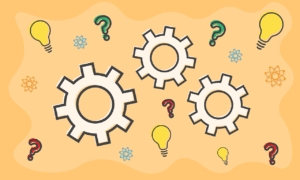 Applying for funding is a good opportunity to clarify the purpose of a proposed activity. Collaboration with administration and other engaged staff when planning allows a vision/goal to be articulated and actualized. A good place to start is by asking everyone involved:
Applying for funding is a good opportunity to clarify the purpose of a proposed activity. Collaboration with administration and other engaged staff when planning allows a vision/goal to be articulated and actualized. A good place to start is by asking everyone involved:
– What is the funding for? What is the end goal of the activity?
– Does the activity address health and well-being, or inclusion and diversity?
– Does it tie to an existing school/school board goal? For example, an outdoor learning initiative.
A fleshed-out idea makes it easier for the school principal and school board to apply for mesures found in the Règles budgétaires de fonctionnement pour les années scolaires 2021-2022 à 2023-2024.
Specifically:
Mesure 15061 — Sensibilité aux réalités autochtones which aims to develop projects that promote harmonious relations between Indigenous and non-Indigenous communities, especially those living in close proximity to each other.
Schools that work with Indigenous students can apply for:
Mesure 15062 — Réussite éducative des élèves autochtones (Educational success of Indigenous students)
This measure is intended for school boards, in collaboration with schools working with Indigenous populations, to develop projects aimed at increasing perseverance and success for Indigenous students to reach their full potential.
In the comments below, we would love to hear from schools that have applied for these measures and examples of successful projects.
Concluding Points
This networking session was a great opportunity to connect with amazing people that have dedicated themselves to decolonizing education, prioritizing diversity and inclusion in schools, and building relationships with their local communities.
In conclusion, we want to continue sharing successes from schools that are engaged in Education for Reconciliation. We want to highlight where relationships are being made, and also hold space for a network that has questions and a need for support in taking first steps.
We are hosting two more networking events on February 10th and April 21st, 2022 from 3:00 pm – 4:15 pm. You can register by clicking on the date of each session.
Sign up for the LEARN Ed4Rec mailing list to be up to date with news and resources.
We are continuing to seek out community partners who are interested in collaborating with schools on projects that support (un)learning in communities across the province and/or their local areas.
Resources
Walking Curriculum’s 30 Day challenge introduces an Indigenous perspective to the outdoor learning activities
Register for Winter Wonderland: Outdoor Learning in the Winter Months. January 25th, 3:30pm

